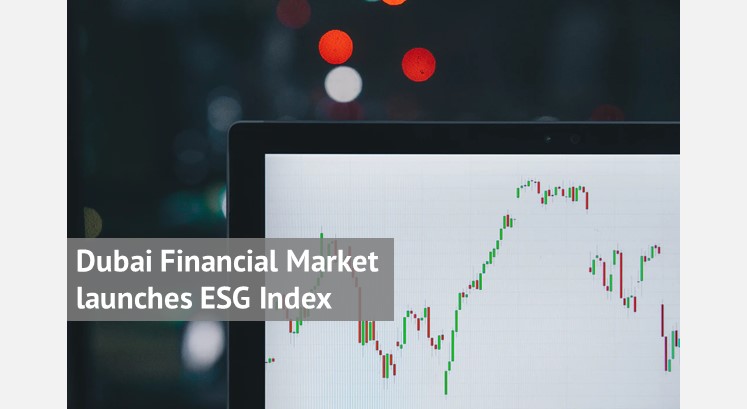How COVID-19 enhanced the importance of ESG standards
In the first quarter of the year, the COVID-19 pandemic caused the biggest collapse in the stock market since the great global financial crisis in 2008, and despite everyone suffering from its effects, companies and investors focusing on environmental, social and Governmental (ESG) standards were the least affected by the pandemic.
The importance of such initiatives to investors and beyond, has increased more than ever. Given the recent evidence of the excellent performance of corporates that follow ESG globally, corporates with better ratings in ESG disclosures have outperformed their peers in large markets during these difficult times. When the economy recovers, corporates following ESG standards will need to focus on demonstrating how ESG creates financial value and meet investor expectations, gain their confidence and ensure growth. In the medium term however, there is an opportunity to “rebuild better” in the sense of a cleaner, more environmentally friendly and sustainable economy.
Sustainability in capital markets
Stock exchanges play an essential role in promoting sustainability in the capital markets and enhancing investors’ confidence. The Sustainable Stock Exchanges (SSE) Initiative, was set up in 2019, is a UN Partnership Programme organised by UNCTAD, the UN Global Compact, UNEP FI and the PRI, with a mission to create an efficient platform for dialogue between the United Nations and stock exchanges, investors, companies, and regulators. This initiative aims to spread best practices of sustainability and transparency in the capital markets, promote institutional investments in sustainable development, and improve corporate governance practices. It also works to reinforce the importance of ESG issues and the importance of public disclosure. More than 80 exchanges worldwide have joined this initiative by making a voluntary public commitment to enhance transparency and market sustainability.
Since the launch of the Dow Jones World Sustainability Indices (DJSI) in 1999, the S&P Dow Jones Indices have been leaders in the global sustainability benchmarks worldwide. In 2012 the first negotiable market index for the Middle East and North Africa (MENA) stock markets was launched. It ranks and tracks the performance, transparency, and disclosure of regional companies in the field of ESG.
Accelerating ESG performance of listed companies
In the Middle East, the ongoing regulatory efforts to establish environmental, social, and corporate governance and encourage corporate responsible behaviours augur well. In Dubai, on 22nd April of this year, the Dubai Financial Market (DFM) launched the Emirates Environmental, Social and Governance Index, which is the first of its kind among the UAE and Gulf financial markets. The S&P/Hawkamah UAE ESG Index measures the commitment of 20 listed joint-stock companies to adopt best practices in corporate governance and social and environmental responsibility.
Development of the UAE ESG Index and guides
The UAE ESG Index was developed in cooperation with S&P Dow Jones Indices, the global leader in financial market indices and the Corporate Governance Institute in the UAE, Hawkamah, the strategic partner of the DFM in disseminating best corporate governance and discipline practices among the listed companies.
Earlier this year, the DFM had issued the ESG Reporting Guide, a Corporate Governance Manual to assist DFM listed companies to voluntarily disclose ESG information and encourage responsible behaviours.
The S&P/Hawkamah UAE ESG Index
The UAE ESG index provides investors with a reliable standard tool that monitors the performance of corporate stocks according to their commitment to the rules of governance and social and environmental responsibility, which will contribute to:
- Raising awareness of corporate governance principles, which are included in the new Corporate Governance Guide for public joint-stock companies
- Development of comparative indicators of these companies’ performance, especially concerning adherence to social and environmental responsibility principles
- Increasing the healthy competitiveness of the UAE markets between listed companies to show their interest in granting issues of governance, social and environmental responsibility more attention
- Contributing to enhancing investor confidence in the capital markets in the UAE
- Attracting more domestic and foreign investment
- Ensuring sustainable growth
All companies included in the Index are subject to an evaluation process according to three measures:
- transparency and disclosure, based on corporate disclosures on implementing environmental, social, and governance responsibility standards
- environment and social indicators
- governance indicators
During the evaluation process, all information related to corporate disclosure about environmental and social responsibility and governance contained in several sources is monitored, and may include the company’s annual report, website, press releases and market disclosures. This process aims to determine the extent to which a company provides transparent disclosures on the indicators included in the assessment system.
Sustainability Vision and the UAE capital market
The United Arab Emirates has made unremitting efforts to push sustainability forward in the region. Within the framework of the United Arab Emirates Vision 2021 and the Dubai Plan 2021, the UAE ESG Index, creates a highly productive investment climate which will attract international investors and encourage sustainable investment while sustaining environmental and social development. The Index represents the efforts to further develop the capital markets’ sector, while supporting companies to meet both their investment and sustainability goals.

